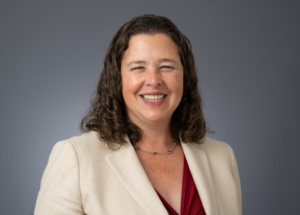Economic Speakers Bureau Adds Climate, Infrastructure, & CHIPS as Areas of Expertise
Kate Gordon, Jennifer Harris, and K. Sabeel Rahman are available to speak on how American dollars are being put to work through the Inflation Reduction Act, the Bipartisan Infrastructure Law, and the CHIPS and Science Act
WASHINGTON — Today, the Economic Speakers Bureau, a diverse national network of economic policy experts, announced that select members are available to discuss the Biden administration’s significant investments to address the climate crisis, rebuild America’s infrastructure, and invest in semiconductor manufacturing through recently passed economic laws. This comes in addition to the wide range of economic policy issues on which the bureau’s policy experts and former Biden administration officials can already comment.
The following experts are available to discuss the administration’s groundbreaking investments in and commitment to clean energy, the environment, sustainable infrastructure, and manufacturing, which represents a new paradigm for industrial policy:
- Kate Gordon, former Senior Advisor to the Secretary of Energy
- Jennifer Harris, Economy and Society Initiative Director at the Hewlett Foundation and former Senior Director for International Economics & Labor on the National Security Council and National Economic Council
- K. Sabeel Rahman, Professor of Law at Cornell Law School and former Associate Director of the Office of Information and Regulatory Affairs
Today’s announcement comes as the Biden administration fans across the country to highlight how the President’s economic achievements are helping everyday Americans as part of its Investing in America tour.
Since the Economic Speakers Bureau launched last year with the goal of adding underrepresented voices and new perspectives to economic coverage, its experts have frequently been featured on national television and radio and quoted across print and digital media. As former senior administration officials, think tank experts, leading researchers, and renowned academic voices, these experts seek to inform coverage of the U.S. economy and how policy decisions impact working-class Americans.
Bureau experts are available for on-air and print interviews, panel discussions, and speaking engagements. More information on these experts and their analysis of climate and infrastructure investments can be found below. Please visit www.econspeakers.org to learn more and email [email protected] to schedule an interview.
Kate Gordon
Visiting Scholar at UC Berkeley Haas School of Business and former Senior Advisor to the Secretary of the U.S. Department of Energy
 Kate Gordon is currently a Visiting Scholar at the University of California-Berkeley Haas School of Business. She previously served as Senior Advisor to the Secretary of Energy and under California Governor Gavin Newsom as the Director of the Governor’s Office of Planning and Research and Senior Policy Advisor to the Governor on Climate. Prior to that, Gordon was the Founding Director of the Risky Business Project, which focused on quantifying the economic impacts of climate change on key U.S. regions and sectors. Gordon earned a J.D. and a Master’s in City and Regional Planning from the University of California-Berkeley and an undergraduate degree from Wesleyan University. Her analysis:
Kate Gordon is currently a Visiting Scholar at the University of California-Berkeley Haas School of Business. She previously served as Senior Advisor to the Secretary of Energy and under California Governor Gavin Newsom as the Director of the Governor’s Office of Planning and Research and Senior Policy Advisor to the Governor on Climate. Prior to that, Gordon was the Founding Director of the Risky Business Project, which focused on quantifying the economic impacts of climate change on key U.S. regions and sectors. Gordon earned a J.D. and a Master’s in City and Regional Planning from the University of California-Berkeley and an undergraduate degree from Wesleyan University. Her analysis:
- Under the Biden-Harris administration, we’ve seen the largest investments since the New Deal in foundational infrastructure and economic development — this time focused on ensuring those investments help build a more sustainable, resilient, and equitable economic future in the U.S.
- Not only IRA, but also the American Rescue Plan (investment in economic recovery and reinvestment planning in regions across the country), IIJA, and CHIPS and Science Act make critical investments into our clean energy transition and long-term future.
- This isn’t a niche issue; the economic shock of COVID, energy shocks from the Russia-Ukraine invasion and Red Sea attacks, and continued/increasing climate shocks to global supply chains require us to focus on investing in clean energy infrastructure, projects, and supply chains here at home.
- This approach is working: over $600B has already been invested in new manufacturing projects since the beginning of the Biden administration, with over $200B in direct clean energy manufacturing.
- While these projects take time to get off the ground, they bring long-term benefits to workers and communities, including through a return of middle skill, middle class jobs for the 60% of American workers without a 4-year college degree. These industries also create long-term tax benefits for communities.
- The administration has also ensured that benefits will flow to those communities most directly affected by transition away from fossil fuels, as well as those often left out of economic growth in the past. Programs like the Dept. of Energy’s Community Benefits Plan requirements ensure the private sector is focused not only on the best widget at the best price, but also on the geographies, workforce characteristics, and culture of those places where projects are being proposed. (Note: I was a co-creator of this strategy at DOE).
- This isn’t your grandfather’s industrial economy; it’s one with far more attention to people, places, and the planet.
Jennifer Harris
Economy and Society Initiative Director at the Hewlett Foundation and former Senior Director for International Economics & Labor on the National Security Council and National Economic Council
 Jennifer Harris is currently the Economy and Society Initiative Director at the William & Flora Hewlett Foundation; a role which she reclaimed after a stint as the Senior Director for International Economics & Labor on the National Security Council and National Economic Council staff. Harris has also served as a Senior Fellow at the Brookings Institution, a Senior Fellow at the Council on Foreign Relations, and as a member of the policy planning staff at the U.S. Department of State. She holds a J.D. from Yale Law School, a M.Phil from the University of Oxford, where she was a Truman and Rhodes scholar, and a bachelor’s degree from Wake Forest University. Her analysis:
Jennifer Harris is currently the Economy and Society Initiative Director at the William & Flora Hewlett Foundation; a role which she reclaimed after a stint as the Senior Director for International Economics & Labor on the National Security Council and National Economic Council staff. Harris has also served as a Senior Fellow at the Brookings Institution, a Senior Fellow at the Council on Foreign Relations, and as a member of the policy planning staff at the U.S. Department of State. She holds a J.D. from Yale Law School, a M.Phil from the University of Oxford, where she was a Truman and Rhodes scholar, and a bachelor’s degree from Wake Forest University. Her analysis:
- Now at roughly the 18-month mark for the passage of CHIPS and the IRA, we have some early returns — and they are uniformly encouraging on both micro and macro levels.
- As of Q3 2023, clean energy and transportation investment was up 42 percent over the same period last year. In its first year, the IRA sparked $282 billion in new investment and created some 175,000 jobs, according to Goldman Sachs analysis, which also estimated that the IRA will drive $3 trillion worth of investments over the next decade.
- This investment is also concentrating in places that have been hit hard by the last 30+ years of US deindustrialization. Private clean energy and semiconductor investment in economically disadvantaged regions is 1.7x higher than traditional fixed investment in these areas.
- These investments are certainly part of the story of the U.S.’ economic resilience. For example: new data through the first half of 2023 shows the clean energy job gains continue and are driven by employment in electricity transmission and distribution and clean electric power generation. Composition of job gains has meaningfully shifted to more “fixed-investment-adjacent” sectors (structures, equipment, IP). There’s also been reallocation of jobs to higher-wage/higher-productivity employers.
- But this work is fragile. It faces a trifecta of headwinds: Beijing is tripling down on clean energy manufacturing as a means of (once again) exporting its economic woes. High interest rates take a disproportionate toll on capital intensive investments like the ones at the heart of the IRA and CHIPS. Estimates suggest that as interest rates rise, the total cost of energy from a gas power plant might rise 8%, but for a clean energy project the same cost could rise as much as 47%. Add to these the difficulty of building entire EV, solar, wind, hydrogen, etc. supply chains all at once, as supply and demand variables for the often dozen or more intermediate products and processing steps are notoriously tricky to match up. The good news is that policy steps exist to remedy all three of these problems.
- Lastly, there is much to like about the direct pay and community benefits agreement aspects of the IRA — in terms of their ability to produce benefits for a given community unrelated to decarbonization; these provisions may be the means by which a rural community retains its emergency services, for example, or lowers electricity costs through community-owned renewable energy.
Sabeel Rahman
Professor of Law at Cornell University Law School, Co-Founder of the Law and Political Economy Project, and former Associate Director of the Office of Information and Regulatory Affairs
 Sabeel Rahman is a Professor of Law at Cornell Law School and Co-Founder of the Law and Political Economy Project. His academic research focuses on issues of democracy, governance, economic power, political economy paradigms, racial equity, and inequality. From 2021–2023, he served in the Biden-Harris Administration where he led the Office of Information and Regulatory Affairs. Before that, he served as President of Demos, a national racial justice think tank and advocacy organization that played a key role in combating voter suppression and developing and mainstreaming major policy ideas from climate justice to student debt relief to energy democracy. His analysis:
Sabeel Rahman is a Professor of Law at Cornell Law School and Co-Founder of the Law and Political Economy Project. His academic research focuses on issues of democracy, governance, economic power, political economy paradigms, racial equity, and inequality. From 2021–2023, he served in the Biden-Harris Administration where he led the Office of Information and Regulatory Affairs. Before that, he served as President of Demos, a national racial justice think tank and advocacy organization that played a key role in combating voter suppression and developing and mainstreaming major policy ideas from climate justice to student debt relief to energy democracy. His analysis:
- With the passage of the IRA, CHIPS, and the Bipartisan Infrastructure Law, the Biden administration has launched a major effort to jumpstart clean energy and manufacturing jobs and to modernize our economy.
- These efforts are driving significant gains in jobs, investment, and the massive growth of the clean energy sector.
- But most importantly, these policies mark a major break with old models of trickle-down economics. Instead of giving more tax breaks and incentives in the hopes that companies and investors do something for communities, the administration has used its industrial policy tools to proactively jumpstart these key new sectors for jobs and innovation where we have an urgent need: clean energy to help save the climate and drive new jobs, semiconductor production where our security depends on bringing this industry back to America, and infrastructures that will drive the next decade of innovation and dynamism.
- What’s more, the administration is doing so in ways that create inclusive prosperity for all. The implementation of these bills has been approached with an eye to making these gains broadly inclusive. The administration has, for example, encouraged firms receiving investments to comply with guidelines on labor standards, domestic manufacturing standards, and more. We are seeing investments increase in overlooked communities and regions. And we are seeing more dollars go into actual investments instead of stock buybacks.
###
About the Economic Speakers Bureau
The Economic Speakers Bureau, an initiative of the Groundwork Collaborative, includes a diverse group of experts available for comment on a variety of topics. Bureau members include former Biden administration officials, labor law and policy experts, economists, and professors of law and public policy. They will be available to speak to a wide range of issues and add underrepresented voices and new perspectives to economic coverage. While these bureau members are diverse in experience and policy areas, they are all grounded in the shared understanding that the strength of the economy should be judged by the economic well-being and trajectory of workers and families. The Economic Speakers Bureau will add nuance and underrepresented voices to the economic conversation, painting a fuller picture of the economy and what can be done to support working people.
